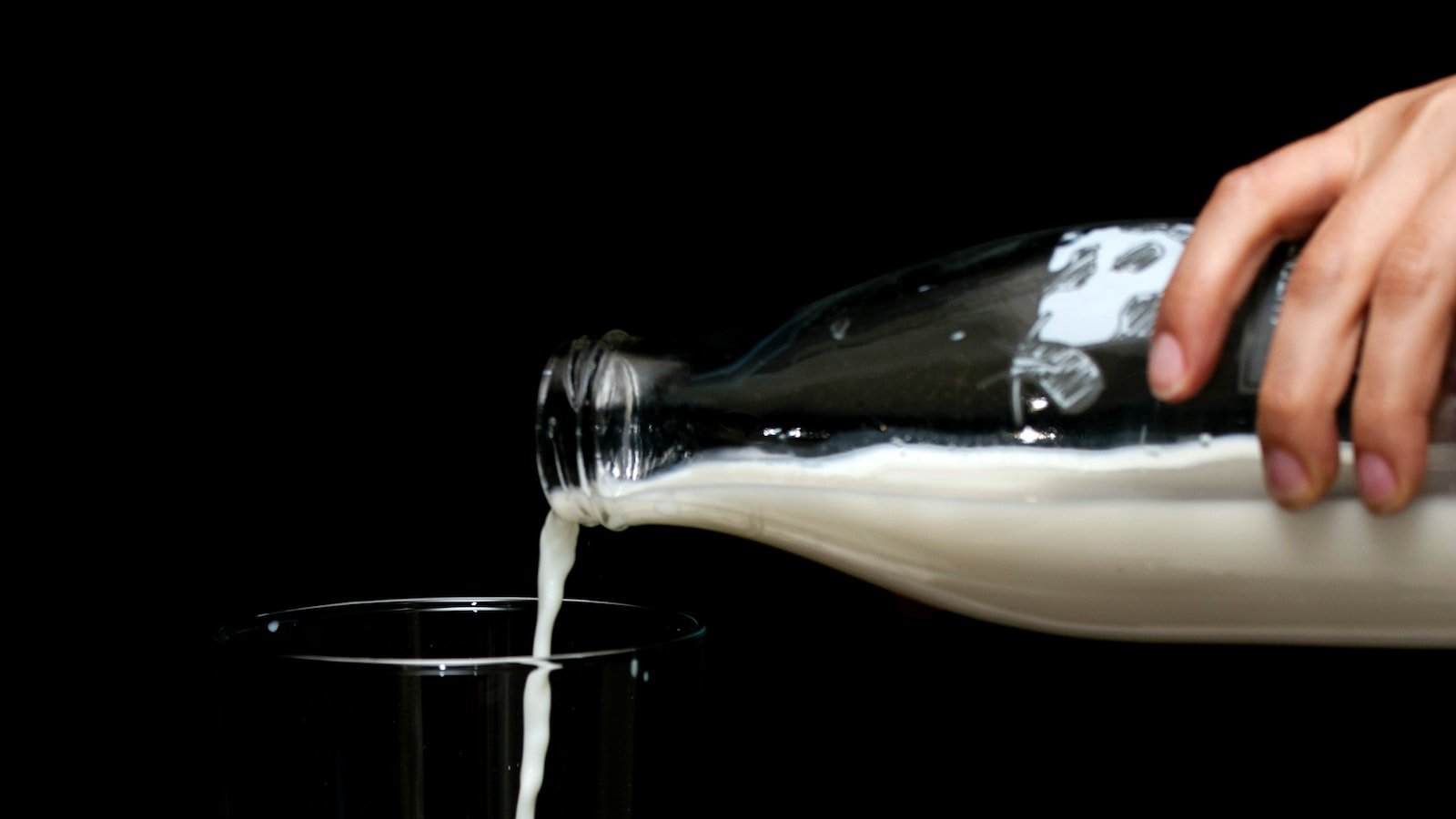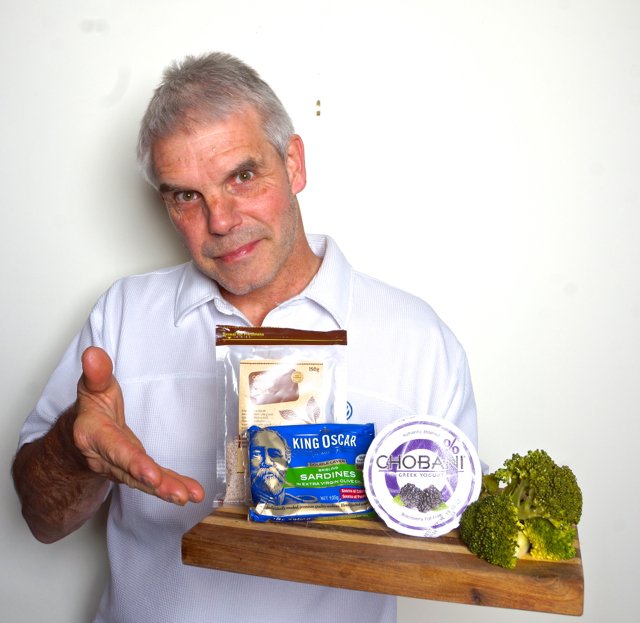Welcoming a new life into the world is undoubtedly a miracle, but the marvels of motherhood go beyond just the birth itself. As blissful moments and sleepless nights intertwine, one crucial aspect that often slips under the radar is postpartum nutrition. A woman’s body undergoes immense changes during pregnancy and childbirth, making it essential to replenish the nutrients for both her own recovery and the well-being of her little one. Amongst these vital elements, calcium stands tall as a nutrient that plays a pivotal role in bone health, muscle function, and overall development. So, if you’ve recently embraced motherhood and are wondering how to ensure you’re getting enough calcium in your postpartum diet, fret not! In this article, we’ll explore handy tips and delicious delights to keep those calcium levels up, nurturing both mother and child along the way. After all, every mom deserves a healthy and strong foundation for the beautiful journey ahead!
Table of Contents
- The Importance of Calcium in a Postpartum Diet
- Sources of Calcium for Postpartum Women
- Specific Recommendations for Consuming Calcium after Childbirth
- Combining Calcium Sources with Vitamin D for Better Absorption
- Supplementing Calcium Intake: When and How to Seek Professional Advice
- Q&A
- The Way Forward

The Importance of Calcium in a Postpartum Diet
After giving birth, a woman’s body goes through numerous changes, including an increased demand for certain nutrients. One vital nutrient that shouldn’t be overlooked during the postpartum period is calcium. Calcium plays a critical role in maintaining bone health, nervous system functioning, and overall bodily functions. It is especially crucial for new mothers who have experienced bone loss during pregnancy.
Here are three reasons why calcium should be a priority in your postpartum diet:
- Supports Bone Recovery: Pregnancy and childbirth can deplete your calcium stores, making it crucial to replenish them to prevent osteoporosis and other bone-related issues. Consuming sufficient calcium helps in strengthening bones and speeds up the recovery process.
- Promotes Breast Milk Production: Calcium is vital for the production of breast milk, ensuring that your baby receives optimal nutrition. Including calcium-rich foods in your diet can help increase your milk supply and provide the necessary nutrients to support your newborn’s growth.
- Helps Prevent Postpartum Depression: Studies have shown a potential link between low calcium levels and an increased risk of postpartum depression. By maintaining adequate calcium intake, you can contribute to stabilizing mood, reducing anxiety, and promoting overall mental well-being.
When planning your postpartum diet, incorporate calcium-rich foods such as milk, yogurt, cheese, spinach, kale, almonds, and fortified plant-based milk alternatives. Additionally, consider discussing with your healthcare provider the need for calcium supplements to ensure you meet your daily requirements during this important recovery period.

Sources of Calcium for Postpartum Women
After giving birth, it is essential for postpartum women to replenish the nutrients their bodies have expended during pregnancy. Calcium, in particular, is crucial for the development of strong bones and teeth, as well as maintaining proper nerve and muscle function. Here are some delicious and nutritious sources of calcium to incorporate into your postpartum diet:
- Leafy Greens: Spinach, kale, and collard greens are not only packed with iron, but they are also excellent sources of calcium. Consider adding these nutrient-rich greens to your salads, stir-fries, or smoothies.
- Fortified Plant-Based Milks: If you prefer non-dairy alternatives, fortified plant-based milks like almond, soy, or oat milk can provide a substantial amount of calcium. Ensure to choose options that are calcium-fortified to maximize its benefits.
-
Legumes: Beans, lentils, and chickpeas are not only high in protein and fiber but also contain a decent amount of calcium. Include them in soups, stews, or as a base for delicious dips to increase your calcium intake.
- Dairy Products: For those who consume dairy, products such as milk, yogurt, and cheese are excellent sources of calcium. Opt for low-fat or non-fat options to ensure a healthier choice.
-
Sesame Seeds: Sprinkle some roasted sesame seeds on your dishes for an easy way to boost your calcium levels. They can be incorporated into salads, stir-fries, or even used as a crunchy topping for desserts.
Remember, calcium plays a vital role in your postpartum recovery, so be sure to include a variety of these calcium-rich foods in your diet. However, consult with your healthcare provider before making any significant changes to your eating habits.

Specific Recommendations for Consuming Calcium after Childbirth
Ensuring an adequate intake of calcium after childbirth is crucial for promoting bone health and supporting lactation. Here are some specific recommendations to incorporate calcium-rich foods into your postpartum diet:
- Incorporate dairy products: Milk, yogurt, and cheese are excellent sources of calcium. Aim for 2-3 servings daily to meet your calcium needs.
- Include leafy greens: Spinach, kale, and collard greens are packed with calcium. Add them to salads or sauté them as a delicious side dish.
- Choose fortified foods: Look for fortified plant-based milk alternatives, like almond or soy milk, that provide both calcium and vitamin D.
- Snack on calcium-rich foods: Enjoy a handful of almonds, sesame seeds, or fortified whole-grain cereals as a healthy and convenient way to boost calcium intake.
Remember that adequate vitamin D intake is also essential for calcium absorption. Spending time outdoors and incorporating vitamin D-rich foods, such as fatty fish and fortified orange juice, can help ensure optimal calcium absorption. Consult with your healthcare provider or a registered dietitian to determine the right calcium intake for your individual needs.

Combining Calcium Sources with Vitamin D for Better Absorption
When it comes to bone health, calcium and vitamin D go hand in hand. While calcium is vital for maintaining strong bones, vitamin D plays a crucial role in helping the body absorb and utilize calcium effectively. For optimal bone health, it is important to combine calcium sources with an adequate intake of vitamin D.
One way to ensure better absorption of calcium is to consume vitamin D-rich foods or take supplements. Foods such as fatty fish (like salmon and mackerel), fortified dairy products, and egg yolks are excellent sources of vitamin D. Incorporating these foods into your diet can provide your body with the necessary vitamin D to enhance the absorption of calcium.
An alternative approach is to soak up the sun’s rays. Your body naturally produces vitamin D when exposed to sunlight. Spending just 10 to 15 minutes outdoors, without sunscreen, a few times a week can help boost your vitamin D levels and consequently improve calcium absorption.
Remember, the key is to find the right balance between calcium intake and vitamin D absorption. Consult with your healthcare provider to determine the appropriate dosage of both nutrients, especially if you have any underlying health conditions or are taking medication that may interfere with their absorption. By combining calcium sources with vitamin D, you can ensure your body is receiving the necessary nutrients for strong and healthy bones!
Supplementing Calcium Intake: When and How to Seek Professional Advice
Calcium plays a vital role in maintaining strong bones and teeth. While it can be obtained through various dietary sources, sometimes supplementing calcium intake becomes necessary. However, knowing when and how to seek professional advice is crucial to ensure optimal health and prevent potential risks. Here are a few important considerations to keep in mind:
Listen to Your Body
Pay attention to signs your body may be giving you. If you are experiencing symptoms like muscle cramps, brittle nails, frequent bone fractures, or a decrease in bone density, it could be an indication of calcium deficiency. Keep an eye out for these cues, as they might be telling you it’s time to get professional advice.
Consult a Healthcare Professional
When in doubt, don’t hesitate to consult with a healthcare professional or a registered dietitian. They have the knowledge and expertise to assess your individual calcium needs based on your age, gender, medical history, and current lifestyle. They can guide you on the appropriate dosage of calcium supplements and advise on any potential interactions with medications or other dietary considerations.
Understanding Potential Risks
While calcium is essential, excessive intake can lead to health problems. It’s vital to be aware of the recommended daily allowance (RDA) for your age group and gender. Professional advice assists in understanding the risks associated with consuming too much calcium, such as kidney stones, gastrointestinal issues, or interference with the absorption of other minerals like iron and zinc. The expertise of a healthcare professional can help you strike the right balance.
Q&A
1. Why is calcium important in a postpartum diet?
Calcium is crucial for postpartum recovery as it helps rebuild and strengthen bones that may have been affected during pregnancy. It also supports milk production and ensures the proper development of your baby’s teeth and bones.
2. How much calcium should I aim for in my postpartum diet?
The recommended daily intake of calcium for postpartum women is around 1,000 milligrams. However, if you are breastfeeding, aim for 1,200-1,300 milligrams to provide enough calcium for both you and your baby.
3. What are good dietary sources of calcium for postpartum women?
Dairy products such as milk, cheese, and yogurt are excellent sources of calcium. Other options include tofu, fortified plant-based milk, leafy greens, nuts, and seeds. Incorporating these foods into your meals can help ensure you meet your calcium needs.
4. Can I take supplements to meet my calcium needs?
Supplements can be taken if you’re struggling to obtain enough calcium from your diet alone. However, it’s always recommended to prioritize food sources first and consult with a healthcare professional before starting any supplements to determine the appropriate dosage for your specific needs.
5. Are there certain foods that can hinder calcium absorption?
Yes, some foods like caffeine and excessive salt can hinder calcium absorption. It’s best to consume these in moderation and balance them with calcium-rich foods to ensure optimal absorption. Additionally, oxalates found in spinach and rhubarb, and phytates in whole grains, legumes, and some seeds, can also slightly hinder calcium absorption.
6. Can I get enough calcium on a vegan or vegetarian postpartum diet?
Absolutely! Vegan and vegetarian diets can provide enough calcium too. Besides plant-based milk alternatives, tofu, and leafy greens, you can explore incorporating calcium-fortified products and nuts like almonds into your meals to meet your calcium needs.
7. Are there any signs of calcium deficiency to watch out for?
Signs of calcium deficiency can include muscle cramps, tingling or numbness in the hands or feet, and fragile nails. If you experience any of these symptoms, it’s important to discuss them with your healthcare provider to rule out calcium deficiency or any other underlying issues.
8. Can taking too much calcium be harmful?
While calcium is essential for your health, excessive intake can have adverse effects. High doses of calcium supplements have been associated with kidney stones and calcium buildup in blood vessels. Stick within the recommended dietary allowances and consult with a healthcare professional before taking supplements.
9. Is it possible to get enough calcium without consuming dairy products?
Absolutely! Dairy products are not the only source of calcium. With proper planning and diversity in your diet, you can achieve the recommended calcium intake by incorporating alternatives like fortified plant-based milk, tofu, leafy greens, and other calcium-rich foods mentioned earlier.
10. Can I increase my calcium absorption by combining certain foods?
Yes, certain foods can enhance calcium absorption. Pairing foods rich in vitamin D, such as fatty fish, mushrooms, or fortified products, with calcium-rich foods can aid in absorption. Consuming foods high in vitamin C, like citrus fruits or bell peppers, alongside calcium-rich sources can also enhance calcium absorption.
The Way Forward
And there you have it – a comprehensive guide to ensuring you get enough calcium in your postpartum diet! We’ve explored a variety of delicious and nutritious options that will not only support your overall health but also assist in the growth and development of your little one. Remember, calcium is the key to strong bones and is important for both you and your baby during this crucial stage of life.
Incorporating dairy products like milk, yogurt, and cheese into your meals will provide a rich source of calcium, allowing you to boost your daily intake effortlessly. But don’t forget about the non-dairy alternatives! From leafy greens like spinach and kale to soy milk and fortified cereals, there are countless ways to diversify your calcium sources and add a burst of flavor to your plate.
By being mindful of your calcium intake and practicing conscious eating habits, you’re not only nurturing yourself but also setting the stage for a healthier future. Remember, your body has gone through an incredible journey of pregnancy and childbirth, and now it’s time to give it the care it deserves.
So, let’s raise a glass of calcium-rich orange juice or savor that delightful plate of broccoli and cheddar soup, knowing that each bite is a step toward postpartum vitality. Embrace this unique period of your life and nourish yourself with the essential building blocks that will lay a strong foundation for both you and your little one.
As a mother, it’s easy to forget self-care amidst the new responsibilities and challenges, but prioritizing your health doesn’t have to be daunting. With the right balance of calcium-rich foods and a bit of creativity in your culinary adventures, you can embrace a postpartum diet that not only supports your well-being but also adds joy to your everyday life.
So go ahead, embark on this calcium-rich journey and enjoy the benefits it brings. Congratulations on your new bundle of joy, and here’s to a healthy and thriving postpartum experience!
As an affiliate, my content may feature links to products I personally use and recommend. By taking action, like subscribing or making a purchase, you’ll be supporting my work and fueling my taco cravings at the same time. Win-win, right?
Want to read more? Check out our Affiliate Disclosure page.